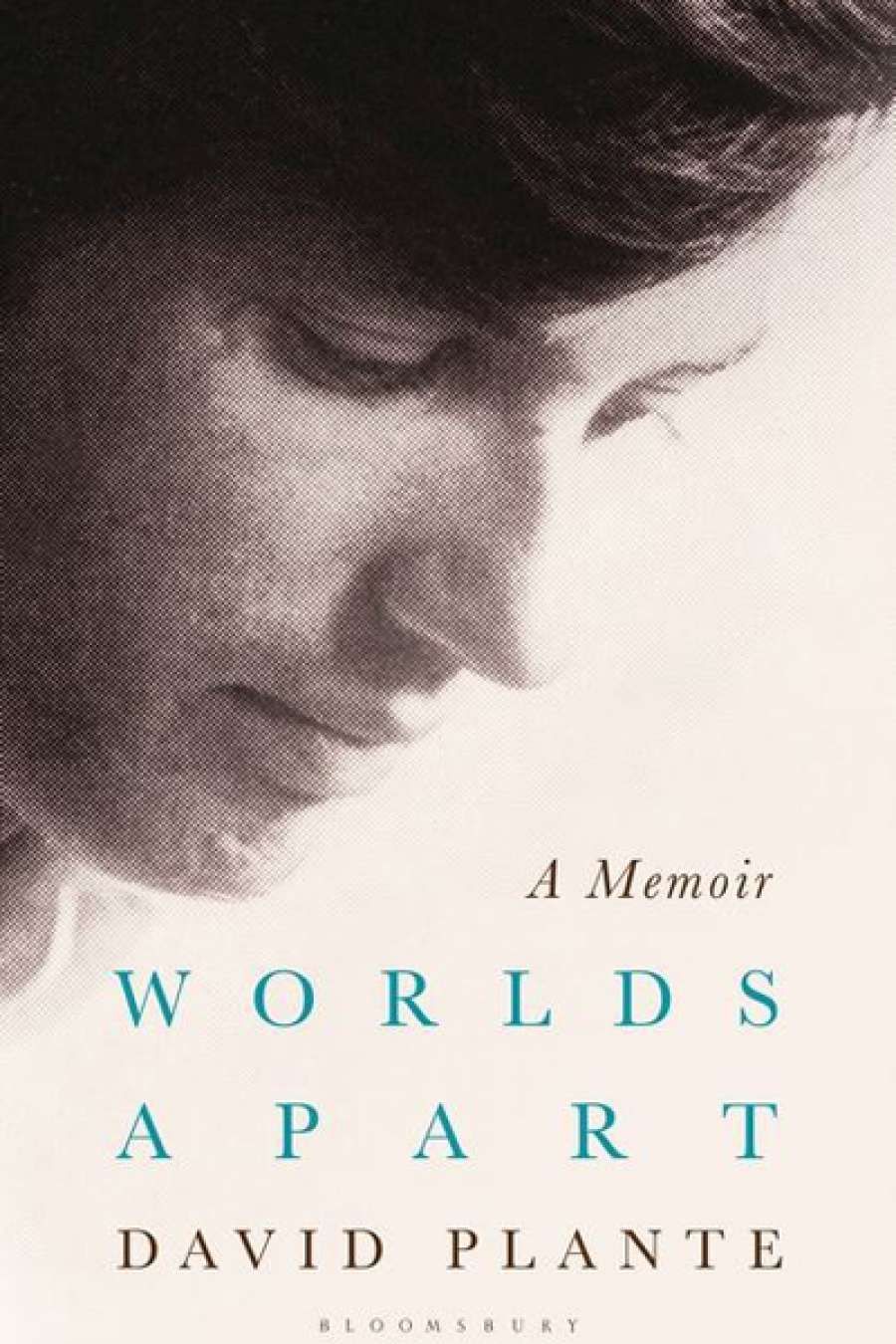
- Free Article: No
- Contents Category: Biography
- Custom Article Title: Ian Britain reviews 'Worlds Apart' by David Plante
- Review Article: Yes
- Online Only: No
- Book 1 Title: Worlds Apart
- Book 1 Subtitle: A Memoir
- Book 1 Biblio: Bloomsbury, $35 hb, 372 pp, 9781408854808
Like pillars of wisdom, or types of ambiguity, name-dropping comes in seven varieties, or at least seven are on display here:
(1) name-dropping direct: 'I had been talking to Angus Wilson'; 'Frank Kermode invited me to high table at King's College, Cambridge, and Bernard Williams, the provost, asked me to sit next to him.'
(2) successive name-dropping: 'I exchanged places with Natasha [Spender] so she could sit next to [Louis] Aragon ... eleven years before, we had met at dinner at the de Rothschilds.'
(3) vicarious or piggyback namedropping: 'Stephen [Spender] ... told me ... he was only five minutes late for dinner with Mrs Onassis'; 'Germaine [Greer] described to me her time in New York when she was at the height of her fame ... She ... was invited to a grand party, and there spoke with Alberto Moravia in Italian, and spent the entire evening with him, aware that other grand people kept passing her by ... and when, finally, she left, she left without speaking to anyone in New York circles whom she should have spoken to, much less having obtained anyone's address or telephone number.' (You get an idea here, perhaps, of how Plante himself courts the famous.)
(4) spectator name-dropping: '"You see that man? He used to be one of the world's great pianists – Solomon.'"
(5) wishful name-dropping: 'She [Germaine Greer] said, "I would like to have a salon" ... Over the following days ... we would add to the list names of people we would like to invite ... The list included ... Rebecca West ... Rosamund Lehmann ... Francis Bacon ... David Hockney ... Frank Auerbach, Patrick Caulfield, Howard Hodgkin ... Isaiah Berlin, Freddy Ayer, Stuart Hampshire, Richard Wollheim.'
(6) historical name-dropping: 'We had menthe and mineral water in the café next to the house where Van Gogh once lived.'
(7) classic, 'I-danced-with-a-man-who-danced-with-a-man' name-dropping: 'Steven [Runciman] said, "Anthony [Blunt], whom I knew well ... was ... sent to Germany to retrieve letters sent by the Prince of Wales."'
'Like pillars of wisdom, or types of ambiguity, name-dropping comes in seven varieties, or at least seven are on display here'
It's brazen, it's breathless, it's beguiling. Strangely unaffected, too, so as to be almost innocent: David Plante just can't help chasing – and attracting – those names. But, as the Jerusalem passage suggests, it is also a trivialising pursuit. The unrelenting recitation of names can diminish the force of the prose as well as the passion. They distract as they dazzle: distract him and us. One, rare counter-example demonstrates this vividly: a ravishingly simple, beautiful, and touching set piece, five pages long, about a Native American ceremonial dance to which the author is invited by one of his students at Tulsa. Yes, there are a lot of names and people to take in: Tony, 'uncle Bill', 'aunt Rosa', Paul, 'Agnes, the dead woman', and a 'fat Indian'. But none of them, for once, is famous. The writing can relax, unfurl, take on depths, unimpeded and uninterrupted by a hovering celebrity. There is nothing else so richly evocative in the whole book.
Louis Menand once argued, in a New Yorker piece, that triviality was of the essence in a diary, a defining feature of the genre. But we have a right to expect more from a purported memoir, especially from a writer who could deliver the goods if he chose to stretch and refine his undoubted gifts.


Comments powered by CComment